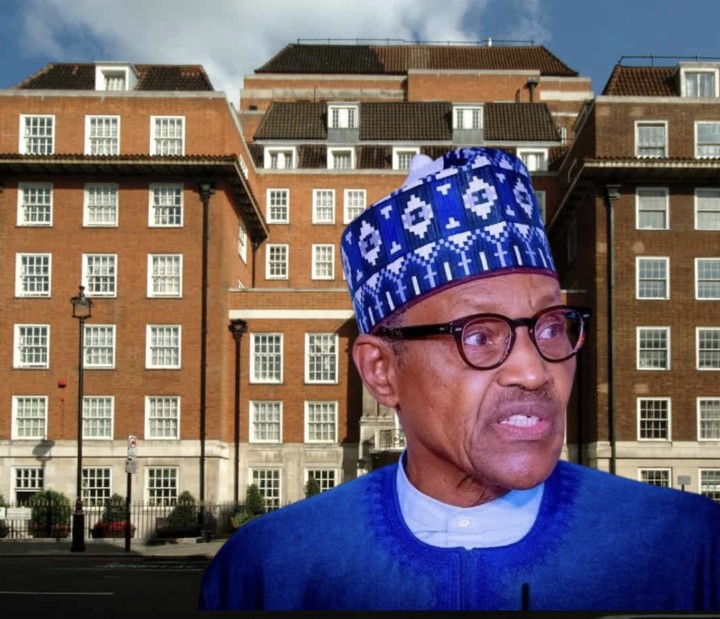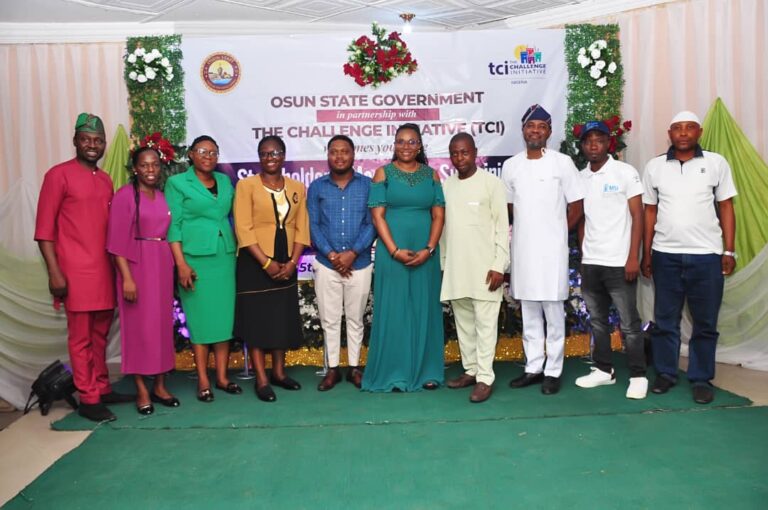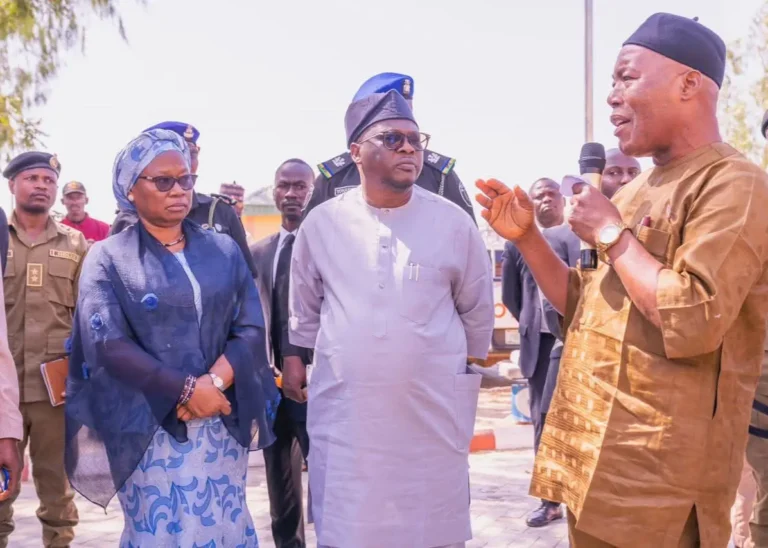
The London Clinic, one of the United Kingdom’s most exclusive private hospitals, has come under the spotlight following the death of Nigeria’s former President, Muhammadu Buhari, at the facility last Sunday.
Buhari and former Head of State, Gen. Abdulsalami Abubakar, were both admitted in the hospital. While Abubakar got well and was discharged, Buhari passed on on Sunday, July 13, 2025.
According to his nephew, Mamman Daura, Buhari was in high spirits as of Saturday, July 12 and was getting ready for discharge before he suffered a relapse at midday on Sunday.
“I left him about 9 pm on Saturday in high spirits and promised to see him on Sunday afternoon. He was looking forward to his doctor’s visit on Sunday morning. But around midday, he started having breathing challenges and doctors rushed to his side to try and manage it. But unfortunately, around 4.30 pm, he gave up the ghost,” Daura told ThisDay.
Buhari was reported to have travelled to the UK in April for a routine medical check-up, but subsequently fell ill.
The cause of death was not disclosed, but he had suffered from ill-health for many years.
According to family sources, Buhari, during his admission at The London Clinic, spent time at the Intensive Care Unit.
His death was announced by his former spokesperson, Mallam Garba Shehu, on Sunday afternoon.
Shehu said, “The family of the former president has announced the passing of the former President, Muhammadu Buhari, GCFR, this afternoon in a clinic in London. May Allah accept him in Aljannatul Firdaus.”
Shortly after news of his death broke, videos emerged online showing the former President’s children and other relatives visiting The London Clinic, situated in the heart of London’s medical district on Harley Street, where he was reportedly undergoing treatment before his passing.
While the exact duration of the former President’s stay at the hospital remains unknown, reports indicate that Buhari had been in London since April for a routine medical check-up.
The London Clinic
Founded in 1932, The London Clinic is one of the largest private hospitals in the UK, best known for its expertise in cancer care, digestive health, orthopaedics, and plastic and cosmetic surgeries.
From the information on its website, the facility boasts 13 intensive care beds, 10 operating theatres, five Macmillan Cancer Support Centres, approximately 900 surgeons and physicians and attends to over 120,000 patients across the world annually.
The hospital’s areas of speciality include: cancer care, haematology, orthopaedics with a focus on spinal surgery, as well as gastroenterology, general surgery, ophthalmology, ENT, neurosurgery, robotic surgery, minimally invasive surgery, and intensive care.
The London Clinic has treated thousands of patients from around the world, among them political leaders and members of the British royal family.
In the hospital’s 2021 annual financial report seen by Saturday PUNCH, the Chairman of the Board of Trustees, Hamish Leslie Melville, said, “Our team of over 900 leading consultants, surgeons and physicians provide an extensive range of medical and surgical interventions. Our medical inpatient and outpatient treatments focus on three core areas: cancer therapies, general surgery with a focus on digestive diseases, and musculoskeletal conditions.”
Speaking with Saturday PUNCH on condition of anonymity for personal reasons, a UK-based Nigerian doctor familiar with the hospital’s operations, described it as one with advanced facilities, a high-profile clientele, and world-class medical expertise.
According to him, patients pay between £100 and £750 for consultations, depending on the complexity of their case.
The Nigerian doctor, who said he knew two fellow Nigerian doctors who once worked at the hospital, said he is aware that a Computed Tomography scan (CT Scan) at the hospital costs around £500, while major surgeries range from £10,000 to £13,000.
“In terms of accommodation, the pricing structure is also tiered. A standard room goes for £1,000 to £1,800 per night. Luxury/VIP room is between £1,800 to £2,500 per night; while the Intensive Care Unit admission costs about £3,000 to £3,500 per night,” he said.
“The clinic is known for its advanced equipment, specialist services, and highly qualified professionals. It’s a facility designed for complex and high-risk cases,” he added.
The doctor said the two respected Nigerian specialists who used to work at the hospital were an orthopaedic surgeon and a respiratory consultant.
Another UK-based Nigerian doctor told Saturday PUNCH that the hospital’s high standard of care comes at a premium.
According to the female doctor, the clinic caters mainly to the super-rich, adding that patients are charged thousands of pounds daily for specialised services, particularly in intensive care and private suites, where discretion, luxury, and top-tier medical attention are guaranteed.
“It is the best and largest private clinic in the United Kingdom. It deals with surgery, robotic surgery, ENT surgery, plastic surgery, and the best in specialised services,” she said.
She added that the hospital is equipped with advanced da Vinci Xi, ExcelsiusGPS, NAVIO robotic surgical technology, 3 T Siemens MRI, multiple CT scanners, PET-CT, ultrasound, digital mammography and other cutting-edge diagnostic systems.
In terms of staffing and expertise, the doctor said, “The clinic boasts an impressive roster of professionals with renowned specialist consultants, many of whom are Fellows of the Royal College of Surgeons and hold additional high-level certifications.”
However, according to a study by the National Institutes of Health seen by Saturday PUNCH, the cost of a bed space at the general ward is around £586.59 per bed day.
“These costs may not include other potential fees or charges associated with your specific treatment plan,” the report noted.
Speaking about its ICU, the clinic, on its website, said, “Our Standard Mortality Rate averages around 0.7 which the Critical care Peer Review states ‘would put the unit in the top 10% of the country’ and has consistently maintained low death rates all of which are reviewed at Mortality and Morbidity Meetings within the clinic.”
It added that, “Patient Experience feedback continues to demonstrate 95-100% satisfaction with their treatment across the MDT with numerous comments and compliments mentioning excellence in staff attitude, caring, compassionate, along with recognition of speciality surgical support and rehabilitation.”
Findings by Saturday PUNCH showed that The London Clinic has provisions for international patients whose treatment is sponsored by their governments, embassies, or companies.
While the Federal Government has not confirmed whether it covered the cost of Buhari’s treatment in London, the Remuneration of Former Presidents and Heads of State (and Other Ancillary Matters) Act requires the government to provide for the medical expenses of former presidents and their immediate families. This provision covers treatment both within Nigeria and, when necessary, abroad.
NMA, MDCAN, NARD kick
Meanwhile, the Nigerian Medical Association; the Medical and Dental Consultants’ Association of Nigeria, and the Nigerian Association of Resident Doctors have criticised political leaders for consistently seeking medical care abroad while neglecting the country’s healthcare system.
Speaking with Saturday PUNCH, the President of the Nigerian Association of Resident Doctors, Dr Tope Osundara, described the trend as not only disheartening but an indictment on Nigerian leaders’ investments in the sector they are expected to strengthen.
Osundara expressed disappointment that Nigerian leaders continue to patronise foreign hospitals despite annual budget allocations to domestic medical facilities like the State House Clinic.
“It’s more like building a company, investing resources in it, then refusing to use the product and telling others to trust it. It tells you that something is fundamentally wrong with the system, with the people entrusted with managing it.
“There was a time when the former president, Muhammad Buhari made some utterances that they should abolish this medical tourism. But unfortunately, before he died, he was even at the forefront of going abroad for treatment. Even a former Head of State, General Abdulsalami Abubakar, disclosed that he and Buhari were admitted to the same hospital in London shortly before Buhari passed away. This tells you that Nigeria’s healthcare system is in bad shape.”
The NARD President said it was ironical that Nigeria was advocating universal health coverage while the country’s leaders “are not patronising the facilities that you have.”
“You are telling people to come and buy something, and you are not taking those things that you are advertising to people. So, that means you are giving them poison; because if you are not giving them poison, you should be able to swallow those pills, and that is when people can trust you,” Osundara said.
The NARD President also criticised Buhari’s ex-spokesperson, Adesina, over his recent remarks.
“It’s unfortunate that such utterances came from someone who served as the media aide to the late President. When you say Buhari would have died if he used a Nigerian hospital, you are indirectly saying Nigerian doctors are incompetent. That’s a false and dangerous narrative,” Osundara said.
He recalled that during Buhari’s administration, Vice President Yemi Osinbajo once fell ill and was treated successfully in Nigeria.
“We have competent professionals who can provide adequate care, whether in the private sector or in public hospitals. If those in the corridors of power cannot trust the very system they are building, it raises serious questions about why medical tourism continues despite all the advocacy against it,” he added.
He said failure to trust and fund the health system in the country not only demoralises healthcare workers but also fuels brain drain, adding that “Nigeria is losing billions to foreign hospitals. Instead of building capacity here, we’re subsidising other nations’ healthcare systems with our taxpayers’ money.”
On his part, the President of the Nigerian Medical Association, Prof. Bala Audu, emphasised that while individuals are free to seek care wherever they choose, the consistent reliance of public office holders on foreign hospitals despite Nigeria’s budgetary allocations to domestic healthcare speaks volumes about misplaced priorities.
He said, “Healthcare is a personal matter, and people follow their doctors wherever they go, even across borders if they can afford it. But when public officials entrusted with strengthening our health sector consistently opt for foreign hospitals, it raises serious concerns. It shows a lack of faith in the very system they are supposed to be building and sustaining.
“We need to restructure our public hospitals to reflect three key issues. Firstly, personnel. There is a need that government concentrates on doctors and nurses. If these two categories of healthcare providers are in place, you don’t have a problem. Secondly, we need equipment and equipment maintenance. Number three, the entire workplace environment should be made conducive for doctors and nurses to work.
“Nigerian doctors and nurses are working tirelessly. There are doctors who work, and stay in the hospital for seven complete days, working 24 hours. The same thing with our nurses.”
Reacting to Adesina’s comment, Audu noted that his remarks inadvertently demean Nigerian healthcare professionals.
“If his (Adesina) implication is that you live longer just by going abroad, then that’s not just unscientific, it’s deeply offensive to the many competent Nigerian doctors and nurses saving lives every day under difficult conditions,” he said.
Audu noted that Nigerian healthcare professionals are globally celebrated for their expertise and work ethics, especially when given proper tools.
“The issue has never been about competence. Nigerian doctors and nurses are among the best in the world. The real problem is the lack of adequate infrastructure and equipment, particularly in public hospitals,” he added.
On his part, the President of the Medical and Dental Consultants’ Association of Nigeria, Prof. Muhammad Muhammad, has said that while leaders and citizens alike retain the right to seek treatment abroad if they choose to do so, it is ideal for Nigerian hospitals to be upgraded and equipped to handle all forms of medical care.
Muhammad emphasised the need for consistent government investment in local health infrastructure, nothing that every citizen should be able to access the full range of medical services required for their condition.
“What we are saying is that there should always be effort from the side of government to ensure that people who are citizens are made to be able to access all the levels of healthcare services their health would require.
“The government should provide the equipment and facilities we need here, and if they advocate against medical tourism, they should stay here to receive treatment,” he said.
He called on the Federal Government to not only strengthen public hospitals but also to support the growth of private super-speciality facilities within the country.
“The Federal Government should, in addition to developing government hospitals, create an enabling environment where super-speciality private hospitals can be encouraged to develop, so that the limitations of government hospitals can be overcome by private hospitals,” he said.
He also urged the government to adopt strategies used in countries like India and Egypt, where deliberate support, such as tax waivers, import duty exemptions, and accessible funding, has helped private hospitals grow into globally recognised centres of excellence.
According to him, such investments would reduce foreign exchange losses, boost employment, and enhance local healthcare delivery.
(PUNCH)


